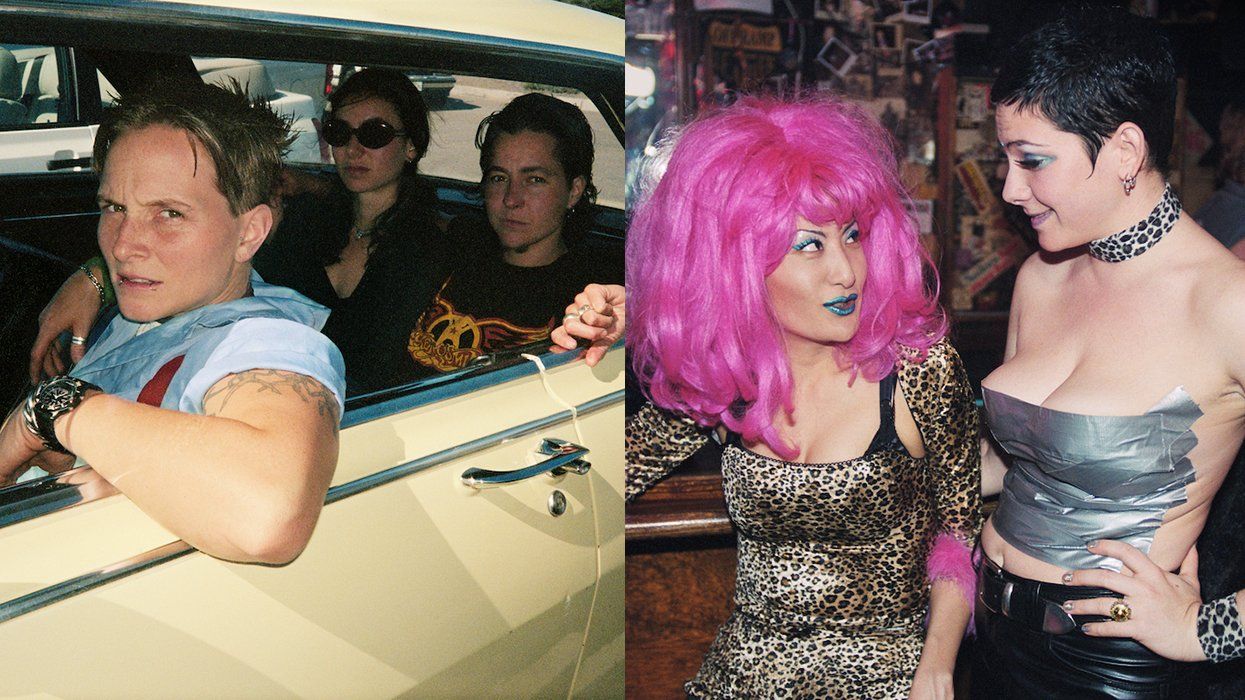Access to reproductive technologies remains a critical issue for LGBTQ+ families, and recent legal developments have exacerbated these challenges. States like Alabama, where a state Supreme Court ruling in February declared embryos to be considered legal persons, have seen significant impacts on in vitro fertilization services. Along with broader legal and social factors, it affects LGBTQ+ people and couples seeking to build their families.
Siegmund Fuchs, a 46-year-old gay attorney and single father of twins, embodies the resilience and determination of LGBTQ+ parents. Expecting a son through surrogacy in July, Fuchs shared the emotional and practical aspects of his journey with The Advocate. “When Dobbs came down, I knew I had one more embryo,” Fuchs revealed, referring to the Supreme Court ruling that overturned Roe v. Wade, which revoked the national guarantee of reproductive freedom. He knew he wanted to have another child. “I’m having a son this summer in July,” he revealed.
Facing logistical challenges, as his surrogate was based in Virginia while he lived in Ohio, Fuchs traveled frequently to attend medical appointments ahead of announcing to his friends and family in April that he was expecting. He also reflected on the significance of community and family support, especially after the death of his sister. “My sister died, and the girls helped me get through it,” Fuchs shared. “Their presence in my life gave me the strength to keep going, to push forward despite the hardships. Moving to Ohio was a way to be closer to family and have that support system nearby.”
Tamisha Williams, 39, and Marthia Fuller, 40, a married lesbian couple from Virginia, recently welcomed their first daughter, Mahogany, through intrauterine insemination. Fuller is an educator, while Williams owns a consulting business. They told The Advocate that their journey to becoming parents began in San Francisco, where the couple said they benefited from excellent health care. However, the pair’s road to parenthood would come with challenges and trials.
Fuller elaborated on the logistical challenges they faced. “We were in Northern Virginia, so I drove to the sperm bank. I picked up the sperm in the big metal containers, and I was doing everything, like loading up the vial, but we were getting negative tests,” Fuller said. “It became internalized where I thought, Did I not load it up correctly? Did I not do this? Did I not do that?”
She also highlighted the emotional toll the process took on their relationship. “Every time it didn’t work, it was heartbreaking,” she said. “But we kept going because we knew in our hearts that we were meant to be parents.”
Williams expressed her relief and joy when she became pregnant.
“Thankfully, in the fourth round, it worked,” Williams said. “It’s been a blessing. As a mom, it’s exciting to watch something that, you know, I felt move inside me now kind of grow in like literally every day seeing something new happen or take shape.”
The Alabama ruling that halted IVF services has raised nationwide concerns about the status of embryos and the rights of individuals seeking reproductive assistance. Traditionally, embryos created during IVF have been treated as property, allowing individuals to use, donate, or discard them without legal repercussions. However, the recent ruling that embryos are legal persons introduces new legal complexities, causing fears of criminal liability for doctors and patients involved in IVF procedures.
Mary Mason, a retired attorney from the Department of Justice with decades of experience in civil rights law, highlighted the broader implications of such legal decisions. “It’s ironic,” Mason noted, “that people who are anti-abortion are now using the same language to try to protect IVF access.” She emphasized the inconsistency in these positions and the need for a more equitable approach to reproductive rights. “Powerful folks get their legislative remedy in a way that nonpowerful folks do not,” Mason said, pointing out the disparity in how laws are applied and enforced. She stressed the importance of understanding the interconnectedness of reproductive and LGBTQ+ rights. “When laws start to define embryos as people, it can criminalize the deeply personal and medical decisions of LGBTQ+ individuals and couples,” Mason explained. “It’s about ensuring everyone has the right to build their family in the way that is best for them without fear of legal repercussions.”
According to the Family Equality Council’s LGBTQ Family Building Survey, there has been a significant shift in how LGBTQ+ families are formed. The survey found that 63 percent of LGBTQ+ people planning families are looking to foster care, adoption, and assisted reproductive technology. This is a dramatic change from existing LGBTQ+ families, where 73 percent have children conceived from intercourse. The survey also highlights that 77 percent of LGBTQ+ millennials (aged 18 to 35) are either already parents or considering having children, indicating a growing trend in LGBTQ+ family building.
Like many other LGBTQ+ individuals, Fuchs, Williams, and Fuller have navigated these challenges to build their families. Their experiences highlight the importance of ensuring access to reproductive technologies and the need for legislative clarity and protections. As the legal landscape continues to evolve, lawmakers must prioritize the rights and needs of LGBTQ+ people seeking to build their families through reproductive technologies, they say.
“We have to keep cultivating community,” Williams emphasized. “At the end of the day, laws are going to say what they say, they’re going to do what they do, but in terms of our livelihood, we can’t do that just based on the laws. We have to keep cultivating community.”
















